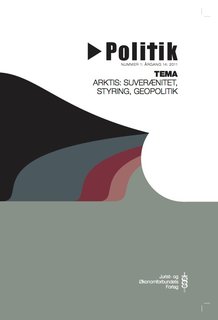EUs oversøiske lande og territorier: postkoloniale suverænitetsspil og Grønlands arktiske muligheder
DOI:
https://doi.org/10.7146/politik.v14i1.27470Resumé
How do former colonies such as Greenland get a voice in international relations? The European Union (EU) is currently revising its relations to the member states’ overseas countries and territories (OCTs). EU seeks to reform its relations to the OCTs so that it builds on a ‘mutually bene tting’ and ‘post-modern’ coopera- tion. Drawing on a rhetorical approach to the notion of ‘sovereignty games’, the article demonstrates that Greenland’s response to the reform proposal differs from that of the other OCTs. Greenland articulates the future relation as one between equals, where both parties give and take. In contrast, the other OCTs remain within a post-colonial discourse of unilateral aid. Geostrategic considerations coupled with unused resources and possibilities in the Arctic are central to Greenland’s ‘Westphalian’ and confident response to the EU.
Downloads
Publiceret
Citation/Eksport
Nummer
Sektion
Licens
Forfattere, der publicerer deres værker via dette tidsskrift, accepterer følgende vilkår:
- Forfattere bevarer deres ophavsret og giver tidsskriftet ret til første publicering, samtidigt med at værket er omfattet af en Creative Commons Attribution-licens, der giver andre ret til at dele værket med en anerkendelse af værkets forfatter og første publicering i nærværende tidsskrift.
- Forfattere kan indgå flere separate kontraktlige aftaler om ikke-eksklusiv distribution af tidsskriftets publicerede version af værket (f.eks. sende det til et institutionslager eller udgive det i en bog), med en anerkendelse af værkets første publicering i nærværende tidsskrift.
- Forfattere har ret til og opfordres til at publicere deres værker online (f.eks. i institutionslagre eller på deres websted) forud for og under manuskriptprocessen, da dette kan føre til produktive udvekslinger, samt tidligere og større citater fra publicerede værker (se The Effect of Open Access).

